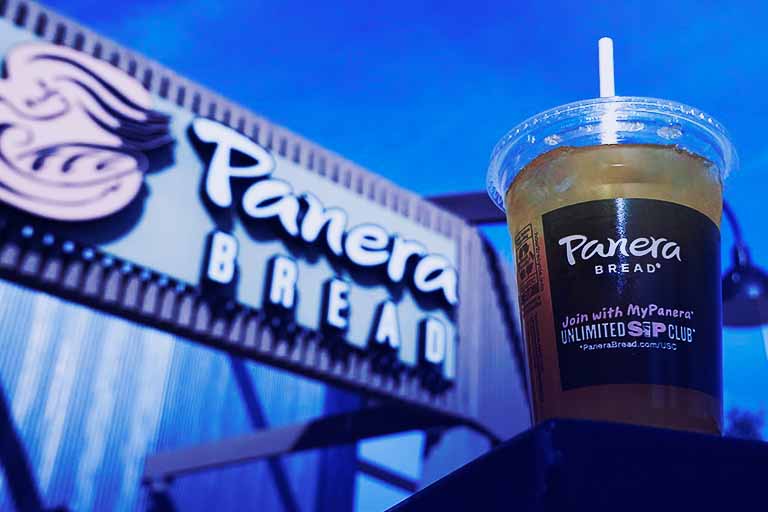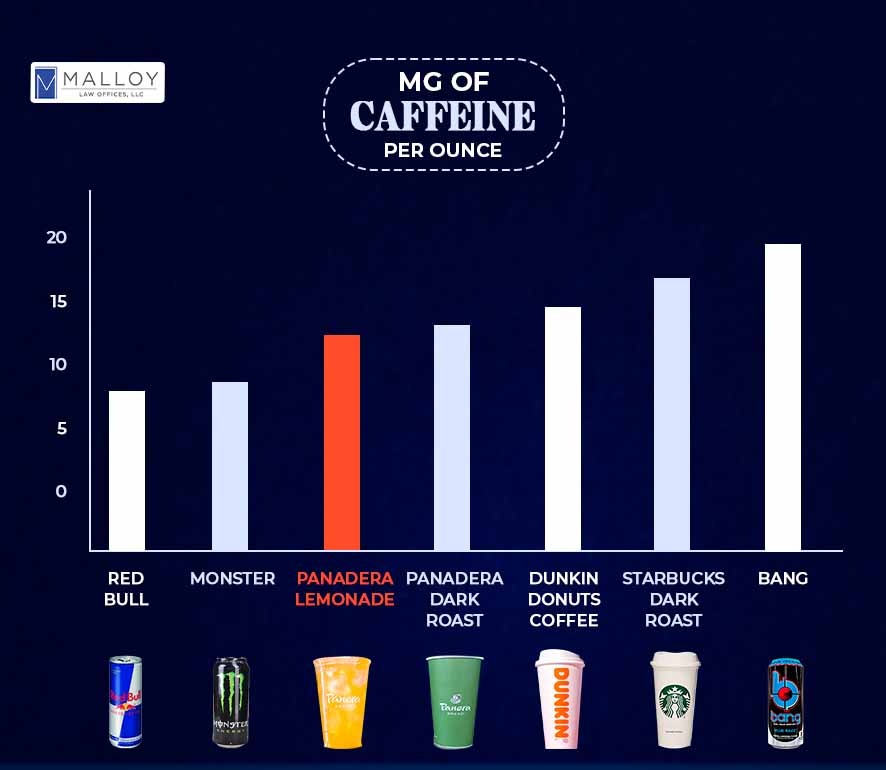Panera “Charged Lemonade” Scandal: A Legal Perspective
Fast casual restaurants have enjoyed a boom period over the past decade. These chain restaurants occupy a middle-ground between cheaper fast food and higher-end chains. This middle-ground allows them to dodge some of the stigma around the unhealthiness of fast food while retaining a focus on speedy service and an appealing price point. One of the leading brands of this boom is Panera Bread. Panera has long been known for its baked goods, as well as a robust menu of soups, salads, and sandwiches. However, Panera has recent come under fire for a recent spate of deaths. In an almost absurd twist; the cause of these recent deaths appears to be a recently launched lemonade beverage. Malloy Law is here with the full account of the ongoing Panera Charged Lemonade scandal. We’ll also unpack the potential legal implications for the company and the families of its unfortunate patrons.
A Brief Summary of Deaths Alleged to be Linked to Charged Lemonade
Panera’s rollout of its new “Charged Lemonade” beverage line first courted controversy late in October 2022. It was around this time when news of the shocking death of 21 year old Sarah Katz, a student at the University of Pennsylvania, hit news outlets nationwide. Katz collapsed in cardiac arrest during a friend’s birthday festivities on the night of September 10th. She was transported to the hospital, where she died of a second, more serious heart attack. It has been confirmed that Katz consumed a Charged Lemonade from a Panera earlier that day. Katz suffered from a heart condition, and avoided energy drinks on the advice of doctors.
Tragedy struck a second time a month later. 46 year old Florida man Dennis Brown suffered a similar heart attack on October 9th. Brown also avoided energy drinks due to high blood pressure. He also suffered from a variety of other chronic ailments. Brown’s official cause of death was listed as “cardiac arrest due to hypertension.”
Caffeine and Other Stimulants
It has since come to light that a large Panera Charged Lemonade contains approximately 390 milligrams of caffeine. In addition, the beverage contains the stimulant guarana extract and a significant portion of sugar. This dosage of caffeine not only dwarfs the amount found in coffee or energy drinks, it also comes close to the threshold of medical danger. The American Food and Drug Administration recommends that healthy adults consume no more than 400 milligrams of caffeine daily. An education in cardiology is not necessary to see how such a massive dose of caffeine delivered to someone with a heart condition or other cardiovascular condition could wreak havoc on their health.
Unpacking the Lawsuits
Both Katz and Brown’s surviving family members have filed suit against Panera Bread. Let us now take a moment to investigate the origins of these cases and the legal precedents the attorneys involved may employ in seeking justice for their departed family members. An early flashpoint which may prove key in claiming just compensation for lives lost concerns how exactly Panera was advertising their Charged Lemonade. Marketing material on their corporate website now refers to Charged Lemonade as an energy drink. However, attorneys have alleged that this was not the case at the time of Katz’ death. Furthermore, it’s been stated that no reference to the drink’s caffeine content was included on in-store marketing materials. If Panera is found to have failed to inform consumers of the caffeine content of Charged Lemonade, this could constitute negligence. This could fall under at least two possible categories of personal injury law.
Product Liability
Product liability is a legal notion that allows plaintiffs to sue if they encounter a faulty consumer item. This doctrine is sometimes related with negligence, although it is more commonly associated with strict liability, which means that defendants can be held accountable regardless of their reason or knowledge.
Wrongful Death
When a person dies or is killed as a result of someone else’s negligence or misconduct, the victim’s surviving family members may sue for wrongful death.
How Malloy Law Can Help
We here at Malloy Law will be monitoring these cases with great interest in the coming months. These sorts of headline-grabbing consumer lawsuits often set legal precedents that can protect consumers for years to come. However, we are still deeply saddened by the passing of both Ms. Katz and Mr. Brown. We strongly urge any readers of this blog to make themselves aware of what potentially hazardous ingredients may be present in the food and beverage they consume.
Our founder and managing partner, Seann Malloy, discusses this topic further with his predictions of what may happen with the lawsuits.
If you or a loved one has suffered an injury or wrongful death due to a defective or dangerous product, contact Malloy Law today for a free consultation. Our experienced attorneys can craft a winning plan of action to seek compensation for your medical bills, lost wages, and pain and suffering. Don’t wait. Contact Malloy Law today and let us win your case.




